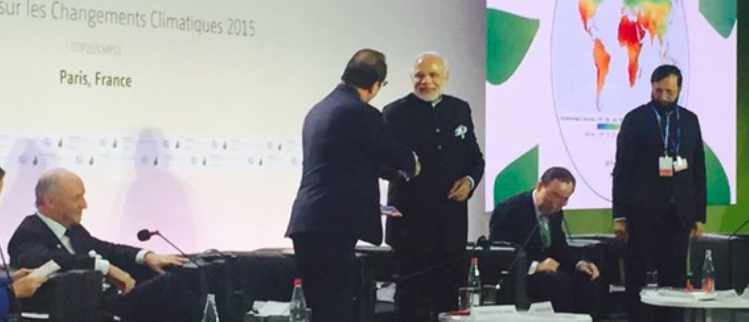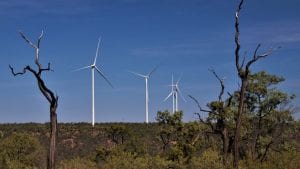A new global solar alliance of over 120 countries aims to mobilise $US1 trillion of investment by 2030 in solar projects to provide affordable clean energy to developing countries.
The International Solar Alliance (ISA), to be based in India, was jointly announced today by Indian Prime Minister Narendra Modi and French President Francois Hollande at the COP21 conference in Paris.
The ISA will bring together governments and the private sector affordable clean energy to many of 1.3 billion people who are currently without access to power.
Contrary to the claims of Australia’s government and fossil fuel industry that coal is the key to deliver access to electricity to the world’s poor, Modi said the world must turn to sun power for our future.
“The convergence between economy, ecology and energy should define our future,” Modi said. ”The vast majority of humanity is blessed with generous sunlight during most of the year but many lack a source of power.”
Modi said the ISA aimed to bring solar energy into homes and villages by making it cheaper, more reliable and easier to connect to the grid. It would promote common regulatory standards and encourage joint ventures between governments and the private sector.
“There is already a revolution in solar energy, technology is evolving, cost are coming down,” Modi said. ”The dream of universal access to clean energy is becoming more real.”
Hollande said that solar was the energy of the future and by creating economies of scale costs would come down and provide affordable clean energy in developing countries.
“Countries have built their wealth on coal, and countries have built their wealth on oil and gas. They are the energies of yesterday. They are not even the technologies of today. Wealth tomorrow will come from new energies, mainly solar energy, that will be developed everywhere in the world,” he said.
The U.S, China and Australia are among the 121 ISA members, which are mostly developing countries in Africa, Asia and South America; They lie in the geographical zone between the tropics of Cancer and Capricorn and have a large solar resource whose “potential remains largely untapped”.
“These countries can potentially harness solar energy in a cost effective manner if a concerted effort is made to share experience from other similar countries,” the ISA declaration said.“Lack of access (to electricity) is particularly acute in rural areas of many countries where economic opportunities are few.”
The ISA aims to; develop innovative financial mechanisms” to reduce the cost of capital for solar projects, formulate projects’ and programmes to promote solar applications such as lighting, heating, cooling, disinfection, pumping, refrigeration and telecommunications; establish collaborations for joint research, develop country specific technology centres, and build common knowledge e=portal.
India will provide $US62 million to establish the ISA headquarters with membership fees and funds from international agencies, and calls on the private sector “to mobilise more than 1,000 billion of investments needed by 2030 for the massive deployment of affordable solar energy”.











